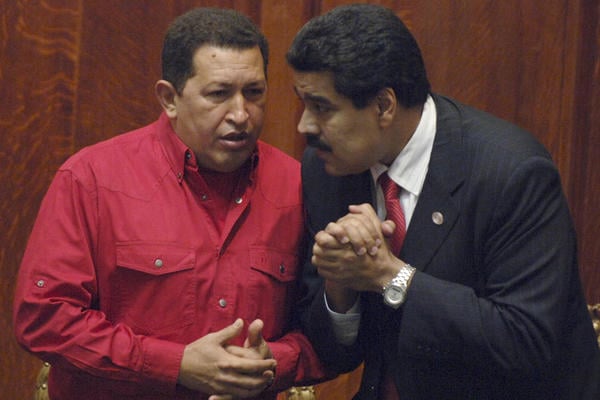
Nicolas Maduro (right) confers with the late Venezuelan President Hugo Chavez in 2007. Maduro will face opposition leader Henrique Capriles Radonski in a special election on Apr. 14, 2013 to choose the next leader of the South American nation. Photo: Matilde Campodonico/AP/File
Brief updates on some of the topics I covered last week:
–In Kenya, results of last week’s presidential race point to Uhuru Kenyatta of the Jubilee Alliance Coalition party as the winner. With just a hair over 50% of the vote, Kenyatta would gain the presidency without a runoff election. However his opponent Raila Odinga plans to challenge the results, claiming a significant amount of vote-rigging took place.
Good news from this election: participation is estimated at 82 percent, which some believe make it the highest voter turnout rate for a presidential election in African history (but if some of the votes were rigged this stat loses some of its luster); Kenya avoided seeing the troubling outbreaks of violence that followed its 2007 election.
Bad news: Kenyatta faces war crimes charges from the international criminal court. To be continued…
–In Venezuela, the National Electoral Council announced that an election will be held on April 14 to choose the country’s next president. As expected, the late Hugo Chavez’s anointed successor Nicolas Maduro will face off against opposition leader Henrique Capriles Radonski. Chavez soundly defeated Capriles in last October’s regular election to win a six-year term; the winner of April’s contest will serve out the the nearly full span of that term.
After Chavez’s funeral last Friday Maduro was sworn in as interim president until the election, a move Capriles has criticized as unconstitutional. Basically more of the same here — hopefully the election will operate on the up and up.